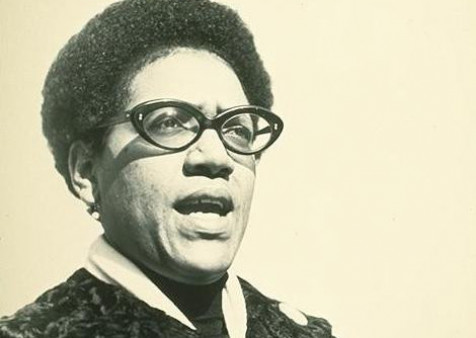The following post is written by Obrenka G. Thompson-Clayborn, MPH, program associate at AIDS United.
In 2015, I began my journey of obtaining my master’s in Public Health. While in graduate school, I met one of my closest friends. While determining where I would make my mark in public health, I began to volunteer and conduct research in the community. Attending community events, leading focus groups and becoming a community resource to those who looked like me felt like home. Working in community allowed me to understand that our communities are not suffering because they don’t have the answers to the questions to fix their community, but rather because they lack the resources and societal understanding of their worth to accomplish them.
Before meeting my best friend, I always thought of issues happening to people as single issues — like this person is living with diabetes or this person is living with high blood pressure. It never occurred to me to think about who people are beyond their diagnosis. By doing this, I never considered the many things that make people so unique and multifaceted. Who people are beyond their diagnosis is what matters the most and breaks down barriers enforced by stigma.
All my life I have been a quote person because I love hearing the ways people will paint a picture with words. The dynamic Audre Lorde once said that “There is no such thing as a single-issue struggle, because we do not lead single-issue lives.” Before beginning my journey in the community, I didn’t understand what this quote meant; however, over the past six years I have learned so much.
When we wake up, we begin our days with everything that makes us our full selves. Our full self encompasses the experiences we had in our childhood, the accomplishments and learning experiences from our youth, the music we love and the dreams we have. With our full selves, we bring a wealth of knowledge shaped by the experiences that we have. Less often we reflect on the experiences that we bring and how they affect how we receive other people’s full selves. I would not have learned these lessons, if I wasn’t fighting against stigma everyday as a Black girl growing up in the South or when I learned that my best friend, who is an amazing public speaker, community advocate and all-around great person, was living with HIV.
I didn’t think about the essence of what makes people their full selves until I met a multifaceted person who was so much more than their diagnosis. This realization began to be my fuel to fight against stigma in my community, especially when it comes to Black people living with HIV.
As we look to another National Black HIV/AIDS Awareness Day, marked each February 7, my hope for community is that we can come together with our full selves and embrace the things that make us not different but unique. Let’s use this day to build bridges to days where HIV no longer exists, but if it does exist, we no longer shun people away from our community because their lives are different than our own.
For more resources about how we #StopHIVTogether, click here.








Comments
Comments